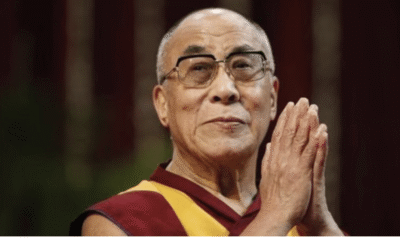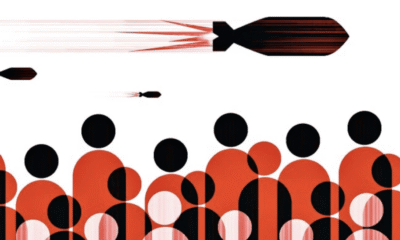
|
Getting your Trinity Audio player ready...
|
It was the undaunting spirit of the people of India in democratic values and institutions that was responsible for the restoration of democracy in 1977. That political will of the masses is the only guarantor of the survival of democracy, and also a warning for future authoritarians. Leaders must strive to uphold that power, not undermine it
The International Day of Democracy comes amid a growing democracy deficit in the world. The essential values of democracy such as freedom, human rights, and the rule of law are increasingly coming under stress in the democratic world. Pseudo and illiberal democracies are on the rise.
Vladimir Putin’s Russia throws Opposition leaders in jail, but describes itself as a “sovereign democracy”. Xi Jinping’s China runs a one-party rule, yet calls itself a “people’s democracy”. The essential ingredient of democracy, as the United Nations points out, is “genuine elections by universal suffrage”. Democracy is not just a goal or synonymous with adjectives such as “sovereign” and “people’s”, but a process by which people change governments by choice. It needs to be zealously guarded and promoted by the international community, national governments and civil society.
At the root of the democracy debate is the society of moral men. Renowned American jurist Joseph Story once exhorted that the United States (US) constitution, which was “reared for immortality”, may perish in an hour “by the folly, or corruption, or negligence of its only keepers, the people.”
Greek philosophers also struggled with the question of individual morality and social happiness. They saw the institution of the State as an instrument for the moral and personal development of man.
This quest for the moral man — an enlightened and philosophically mature individual — led to many experiments in the Western world. Plato’s philosopher-kings ruled over their subjects in the name of God, but ended up creating dictators such as Adolf Hitler and Benito Mussolini. But when reason became God, the Bastille was invaded by French citizens in July 1789. The famous French Revolution was sparked off. God was stripped of his “Holiness” and reason occupied his place. “One God only, Le Peuple (The People)”, French revolutionaries exclaimed, paving the way for the rise of communist ideology and democratic institutions.
India opted for democracy at the dawn of Independence. There was scepticism in England. Prime Minister Clement Attlee cautioned Jawaharlal Nehru that India might end up in the hands of an “ambitious authoritarian individual”. Yet, there was near-unanimity in India on democracy. Discounting Attlee’s apprehensions, BR Ambedkar reassured the Constituent Assembly that democracies were not new to India. “It is not that India did not know Parliaments or Parliamentary Procedure. A study of the Buddhist Bhikshu Sanghas discloses that not only were there Parliaments — for, the Sanghas were nothing but Parliaments — but the Sanghas knew and observed all the rules of Parliamentary Procedure known to modern times”, he said.
Deen Dayal Upadhyay, the leader of the Jana Sangh, added that the Vedic Sabhas and Samitis were also organised on the basis of democracy, and many medieval states in India were completely democratic. But he also wanted Indian democracy to be different from that in the West. Democracies by definition are majoritarian. They stifle the voice of the political minorities. Deen Dayal Upadhyay advocated a form of democracy that harmonises the majority and minority. “Anyone, who has a different opinion from the majority, even if he is a single individual, his viewpoint must be respected and incorporated into governance,” he argued.
Mahatma Gandhi’s views were also similar. For him, democracy meant the weakest getting the same opportunity as the strongest, and a majority rule was equal to slavery. He advised the members of the Constituent Assembly not to imitate the British or the Soviets, but to build a democracy on the ideals of “Ram Rajya — the sovereignty of the people based on pure moral authority”.
India was one of the first countries to become democratic after the disastrous World War II, and also the biggest. It inspired other newly-independent countries to opt for a democratic model. By the end of the last century, the world had witnessed a democratic boom. More than 120 countries became functional democracies. Countries such as the US had set out with great enthusiasm to bring democracy to lawless lands such as Afghanistan and in West Asia.
But the tide seems to be turning. It appears that the era of authoritarians and autocrats is slowly returning. Julius Caesar used to invite sculptors to prepare hundreds of his sculptures. Similarly, whenever he came across a new name, Joseph Stalin’s only question used to be whether he the person was a “genius”. If the answer was yes, the individual would disappear the next day. Such tendencies are back in regimes — from Asia and Africa to Latin America.
India has, with the dishonourable exception of the 20-month Emergency in 1975-77, been a glowing example of a successful democracy. This was as much due to the commitment of its leadership to democracy as to popular will rooted in it. Plato feared that in the absence of such popular commitment, demagogues would indulge in “false and braggart words” and turn democracies into staging points for tyranny.
It was the undaunting spirit of the people of India in democratic values and institutions that was responsible for the restoration of democracy in 1977. That political will of the masses is the only guarantor of the survival of democracy, and also a warning for future authoritarians. Leaders must strive to uphold that power, not undermine it. Ronald Reagan insisted that the greatest leader is not necessarily the one who does the greatest things, but one “who gets the people to do the greatest things”. Upholding democracy is one such great thing.
(The article was originally published in Hindustan Times on September 14, 2021. Views expressed are personal.)



